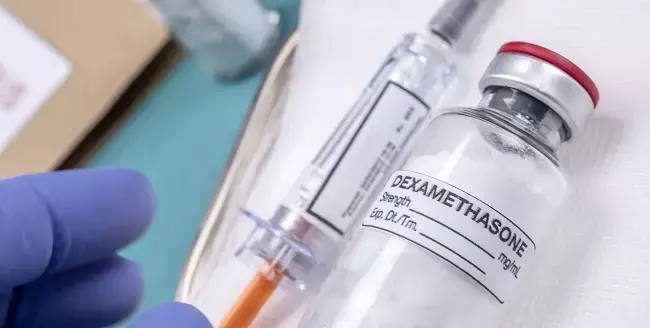- Home
- Medical news & Guidelines
- Anesthesiology
- Cardiology and CTVS
- Critical Care
- Dentistry
- Dermatology
- Diabetes and Endocrinology
- ENT
- Gastroenterology
- Medicine
- Nephrology
- Neurology
- Obstretics-Gynaecology
- Oncology
- Ophthalmology
- Orthopaedics
- Pediatrics-Neonatology
- Psychiatry
- Pulmonology
- Radiology
- Surgery
- Urology
- Laboratory Medicine
- Diet
- Nursing
- Paramedical
- Physiotherapy
- Health news
- Fact Check
- Bone Health Fact Check
- Brain Health Fact Check
- Cancer Related Fact Check
- Child Care Fact Check
- Dental and oral health fact check
- Diabetes and metabolic health fact check
- Diet and Nutrition Fact Check
- Eye and ENT Care Fact Check
- Fitness fact check
- Gut health fact check
- Heart health fact check
- Kidney health fact check
- Medical education fact check
- Men's health fact check
- Respiratory fact check
- Skin and hair care fact check
- Vaccine and Immunization fact check
- Women's health fact check
- AYUSH
- State News
- Andaman and Nicobar Islands
- Andhra Pradesh
- Arunachal Pradesh
- Assam
- Bihar
- Chandigarh
- Chattisgarh
- Dadra and Nagar Haveli
- Daman and Diu
- Delhi
- Goa
- Gujarat
- Haryana
- Himachal Pradesh
- Jammu & Kashmir
- Jharkhand
- Karnataka
- Kerala
- Ladakh
- Lakshadweep
- Madhya Pradesh
- Maharashtra
- Manipur
- Meghalaya
- Mizoram
- Nagaland
- Odisha
- Puducherry
- Punjab
- Rajasthan
- Sikkim
- Tamil Nadu
- Telangana
- Tripura
- Uttar Pradesh
- Uttrakhand
- West Bengal
- Medical Education
- Industry
Dexamethasone and oseltamivir combo effective option for immune thrombocytopenia: Study

China: The combination of dexamethasone plus oseltamivir is effective in the management of newly diagnosed primary immune thrombocytopenia, finds a recent study in the journal Lancet Haematology.
Primary immune thrombocytopenia is an autoimmune bleeding disorder that affects both children and adults. Sialidase inhibitor oseltamivir is shown to induce a platelet response in the treatment of immune thrombocytopenia, in preclinical reports. The study by Prof Yu Hou, Cheeloo College of Medicine, Shandong University, Jinan, China, and colleagues aimed to investigate the safety and activity of dexamethasone plus oseltamivir versus dexamethasone alone as initial treatment in adult patients with primary immune thrombocytopenia.
For this purpose, the researchers performed a multicentre, randomized, open-label, parallel-group, phase 2 trial in five tertiary medical hospitals in China. Eligible patients were aged 18 years or older with newly diagnosed, treatment-naive primary immune thrombocytopenia. 96 people were randomly assigned to receive either dexamethasone (orally at 40 mg per day for 4 days) plus oseltamivir (orally at 75 mg twice a day for 10 days); n=47 or dexamethasone monotherapy (orally at 40 mg a day for 4 days); n=49.
Patients who did not respond to treatment (platelet counts remained <30 × 109 cells per L or showed bleeding symptoms by day 10) were given an additional cycle of dexamethasone for 4 days in each group. Patients in the dexamethasone plus oseltamivir group who relapsed (platelet counts reduced again to <30 × 109 cells per L) after an initial response were allowed a supplemental course of oseltamivir (75 mg twice a day for 10 days). The coprimary endpoints were 14-day initial overall response and 6-month overall response.
Complete response was defined as a platelet count at or above 100 × 109 cells per L and an absence of bleeding. Partial response was defined as a platelet count at or above 30 × 109 cells per L but less than 100 × 109 cells per L and at least a doubling of the baseline platelet count and an absence of bleeding. A response lasting for at least 6 months without any additional primary immune thrombocytopenia-specific intervention was defined as sustained response.
90 patients were included in the modified intention-to-treat analysis.
Key findings of the study include:
· Six patients did not receive the allocated intervention.
· Patients in the dexamethasone plus oseltamivir group had a significantly higher initial response rate (37 [86%] of 43 patients) than did those in the dexamethasone group (31 [66%] of 47 patients; odds ratio [OR] 3·18) at day 14.
· The 6-month sustained response rate in the dexamethasone plus oseltamivir group was also significantly higher than that in the dexamethasone group (23 [53%] vs 14 [30%]; OR 2·17).
· During the median follow-up of 8 months (IQR 5–14), two of 90 patients discontinued treatment due to serious adverse events (grade 3); one (2%) patient with general edema in the dexamethasone plus oseltamivir group and one (2%) patient with fever in the dexamethasone group.
· The most frequently observed adverse events of any grade were fatigue (five [12%] of 43 in the dexamethasone plus oseltamivir group vs eight [17%] of 47 in the dexamethasone group), gastrointestinal reactions (eight [19%] vs three [6%]), insomnia (seven [16%] vs four [9%]), and anxiety (five [12%] vs three [6%]).
· There were no grade 4 or 5 adverse events and no treatment-related deaths.
"The preliminary activity of this combination warrants further investigation," concluded the authors. "Multiple cycles of oseltamivir, as a modification of current first-line treatment, might be more effective in maintaining the platelet response."
Reference:
The study titled, "Dexamethasone plus oseltamivir versus dexamethasone in treatment-naive primary immune thrombocytopenia: a multicentre, randomised, open-label, phase 2 trial," is published in the journal Lancet Haematology.
DOI: https://www.thelancet.com/journals/lanhae/article/PIIS2352-3026(21)00030-2/fulltext
Dr Kamal Kant Kohli-MBBS, DTCD- a chest specialist with more than 30 years of practice and a flair for writing clinical articles, Dr Kamal Kant Kohli joined Medical Dialogues as a Chief Editor of Medical News. Besides writing articles, as an editor, he proofreads and verifies all the medical content published on Medical Dialogues including those coming from journals, studies,medical conferences,guidelines etc. Email: drkohli@medicaldialogues.in. Contact no. 011-43720751


